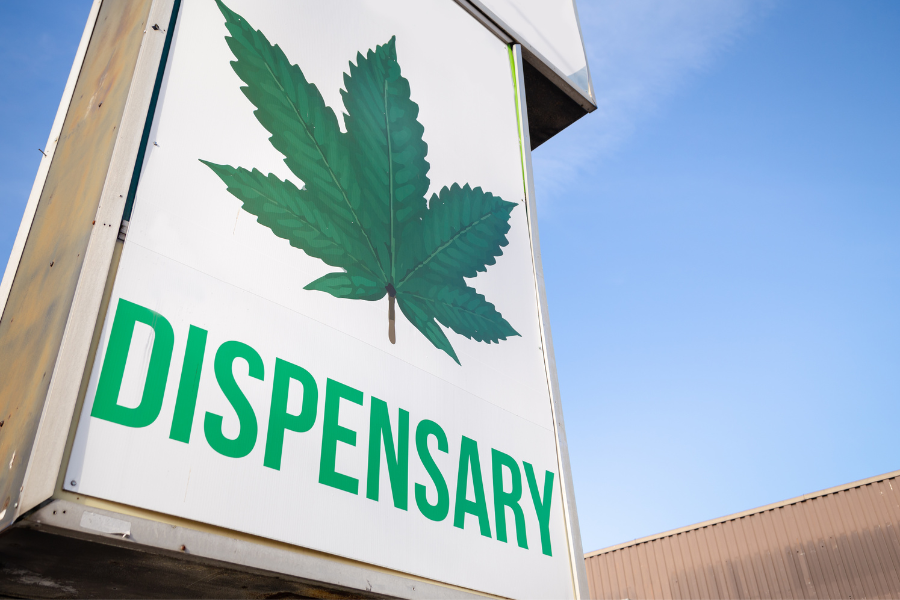Marijuana…
Know the Truth
An initiative of Drug Free American Foundation Inc.

The Cost of Legalization
There has been a push to legalize marijuana in America and a number of states have already done so. While some lawmakers and others involved with marijuana commercialization are quick to tout the tax revenue benefit of legalization, they fail to share the consequences that exist.
Marijuana potency has significantly increased and new methods of processing marijuana have yielded extremely high potency extracts called wax, shatter, dabs with THC levels up to 80%.
Research shows that high potency marijuana induces anxiety, psychosis, and schizophrenia, even in those with no prior signs of mental illness.

Youth Dangers & Potency
One in six youths who use marijuana are at risk of becoming addicted. Daily adolescent users are eight times more likely to use other illegal drugs in the future, and seven times more likely to attempt suicide.
Marijuana is truly a “gateway drug”.” It primes the brain for a heightened response to other drugs. Marijuana users are 3x more likely to misuse prescription opioids and 2x more likely to develop prescription opioid dependence.
Marijuana is big business. “Big Marijuana” is a lucrative global industry that has followed the “Big Tobacco” playbook by marketing their products to youth and downplaying the dangers.
Electronic vaping devises and high THC edible products like candy, cookies and sodas appeal to youth and allow users to go undetected in schools and the workplace.

Crime & Environmental Impact
The black market continues to thrive in states that have legalized marijuana, leading to crime and violence. Also, in some states that have legalized marijuana, traffic deaths involving drivers who tested positive for marijuana more than doubled and there has been a significant increase in emergency rooms visits, hospitalizations, and calls to poison control.
Additionally, marijuana cultivation poses significant risks to the environment. Marijuana grow sites are poisoning farmland by endangering native animals and their habitats, diverting water resources, influencing deforestation, and polluting water with toxic waste run off.

There has been a push to legalize marijuana in America and a number of states have already done so. While some lawmakers and others involved with marijuana commercialization are quick to tout the tax revenue benefit of legalization, they fail to share the consequences that exist.
Marijuana potency has significantly increased and new methods of processing marijuana have yielded extremely high potency extracts called wax, shatter, dabs with THC levels up to 80%.
Research shows that high potency marijuana induces anxiety, psychosis, and schizophrenia, even in those with no prior signs of mental illness.

One in six youths who use marijuana are at risk of becoming addicted. Daily adolescent users are eight times more likely to use other illegal drugs in the future, and seven times more likely to attempt suicide.
Marijuana is truly a “gateway drug”.” It primes the brain for a heightened response to other drugs. Marijuana users are 3x more likely to misuse prescription opioids and 2x more likely to develop prescription opioid dependence.
Marijuana is big business. “Big Marijuana” is a lucrative global industry that has followed the “Big Tobacco” playbook by marketing their products to youth and downplaying the dangers.
Electronic vaping devises and high THC edible products like candy, cookies and sodas appeal to youth and allow users to go undetected in schools and the workplace.

The black market continues to thrive in states that have legalized marijuana, leading to crime and violence. Also, in some states that have legalized marijuana, traffic deaths involving drivers who tested positive for marijuana more than doubled and there has been a significant increase in emergency rooms visits, hospitalizations, and calls to poison control.
Additionally, marijuana cultivation poses significant risks to the environment. Marijuana grow sites are poisoning farmland by endangering native animals and their habitats, diverting water resources, influencing deforestation, and polluting water with toxic waste run off.
News

Reports from the CDC show a vast increase in marijuana-related ER visits among youth during the pandemic
The frequency of young individuals consuming harmful amounts of marijuana


Marijuana policies and opioid mortality rates
In a study published in the Journal of Health Economics, researchers examined the relationship between different marijuana legalization policies and opioid mortality rates in the U.S. Analyzing data from 1999 to 2019, researchers found that marijuana legalization is associated with higher opioid death rates, contradicting the marijuana protection hypothesis which proposes that the availability of marijuana reduces deaths from opioids.